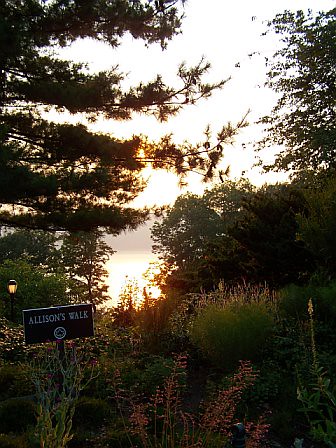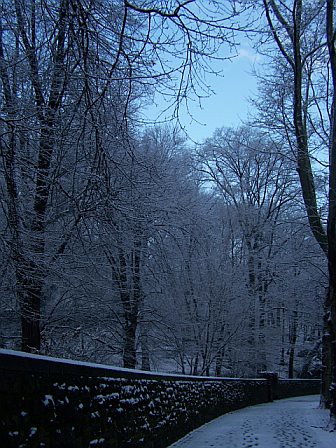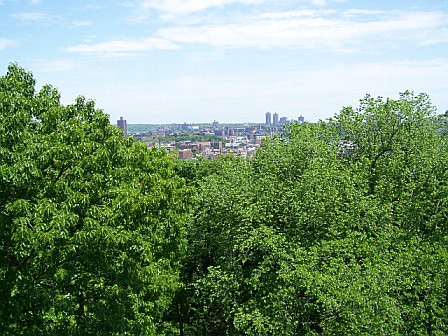



I love my neighborhood.
But as in any place that you live there are inevitably things that you don't like, be they noise, traffic, rude neighbors, etc. You learn to live with the things that you don't like because the things you do like outweigh the negatives by far. I don't like being stereotyped or labeled, but it's definitely not enough to make me leave.
I came across a blog yesterday written by a woman who lives in my neighborhood. It sounds affected, but style aside, it's interesting. The thing that interests me the most is the repeated use of "gentrifier" when she gives actually no qualification for why she uses it. Is she being ironic? Or is she laying an accusation? (ETA: Continuing discussion over at Inwoodite)
Let's take a look at Wikipedia, shall we?
"Gentrification, or urban gentrification, is a phenomenon in which low-cost, physically deteriorated neighborhoods undergo physical renovation and an increase in property values, along with an influx of wealthier residents who may displace the prior residents."
Now gentrification, yes I get it. People don't like being "forced out" of their neighborhoods by people who have money that they put into infrastructure. But is that really what is going on here? Inwood is relatively low cost for Manhattan, but physically deteriorated? By and large, no. There are a few instances of new buildings going up, one particularly sad example is a building on Payson and Seaman where a community garden used to be. (Full disclosure: My studio class singled that one out as an endangered site for development in our Inwood study.)
And it seems like she uses "gentrifier" to refer solely to the white 20-somethings who make their home here when, let's face it, these 20-somethings hardly qualify as "wealthier residents." So is Inwood being gentrified? Are we 20-somethings who could live here or in parts of Queens or the Bronx or Brooklyn paving the way for the upper middle-class families who may be priced out of the Upper West Side? Will pied-a-terres be coming to Inwood? Oh, the humanity!
As a white 20-something who is the daughter and granddaughter of Inwood residents (East of Broadway, no less), am I a "gentrifier"? Given my family's early addresses on Vermilyea Ave, Sherman Ave, and Academy Street, some might say I'm moving up in the world.
But let's face it: My family left Inwood when crime went up and people who could afford not to live in New York City anymore exited en masse. So I'm an outsider. Worse, I'm from the suburbs. (Gasp! New Jersey!) I make more than the neighborhood's (Community Board 12) median $28,865 household income. I'm college-educated with an advanced degree in my field. I like nice restaurants, organic food, green markets, clean streets, and low crime.
Does that make me a "gentrifier"?
Do the things that seem to come along with gentrification (the aforementioned restaurants and green markets, as well as the renovated buildings and new developments) necessarily mean that long-time residents - who maybe don't have the same income as the new arrivals - will be priced out?
I work in the preservation industry in the city which means that I have seen the ways that gentrification works (and doesn't work) for the communities where it occurs. I also had the privilege to study Inwood while at Columbia for my Preservation Studio. I walked the streets, studied the buildings, researched the history and the culture. I'm not here for selfish reasons. But I'll admit, a nice apartment that doesn't break the bank? That's pretty good incentive to live here all on its own.
My dad moved out of Inwood in the 1970s when he married my mom because she had an apartment in Englewood, NJ that was bigger and cheaper than the apartment he had in Inwood that was practically underneath the 1 train. No brainer, right? But my dad still got priced out of Inwood. Who knew. And now I'm living in this neighborhood where my dad grew up and people who look a heck of a lot like me are labeled gentrifiers. My dad owns a house in New Jersey in a neighborhood that he and my mom couldn't afford to buy into now. They just happened to get in at the right time. Did their neighborhood gentrify around them?
Things change, neighborhoods change. As the population grows there just isn't room enough for everyone. It's the basis of conflicts throughout history: the fight for the best hunting grounds, water sources, shelters. The early Irish-American and Jewish residents of Inwood were displaced by a changing society. Some of those early residents of the beautiful Art Deco pre-war buildings in Inwood chose to stay, but most didn't. And people moved in to fill the void. Take away the crime levels that drove those early residents out and suddenly people of similar socio-economic groups want to move back and that's gentrification?
Everyone needs a place to live is all I'm saying. And places that are nice are going to be the first ones to go. And Inwood's nice.
Slightly unrelated: This weekend I'm bringing my camera to the greenmarket on Isham and I'm going to take some time to take some pictures. I've been sorely neglecting my camera. These pictures you see above are definitely not descriptive of Inwood, but good lord I love those parks.







